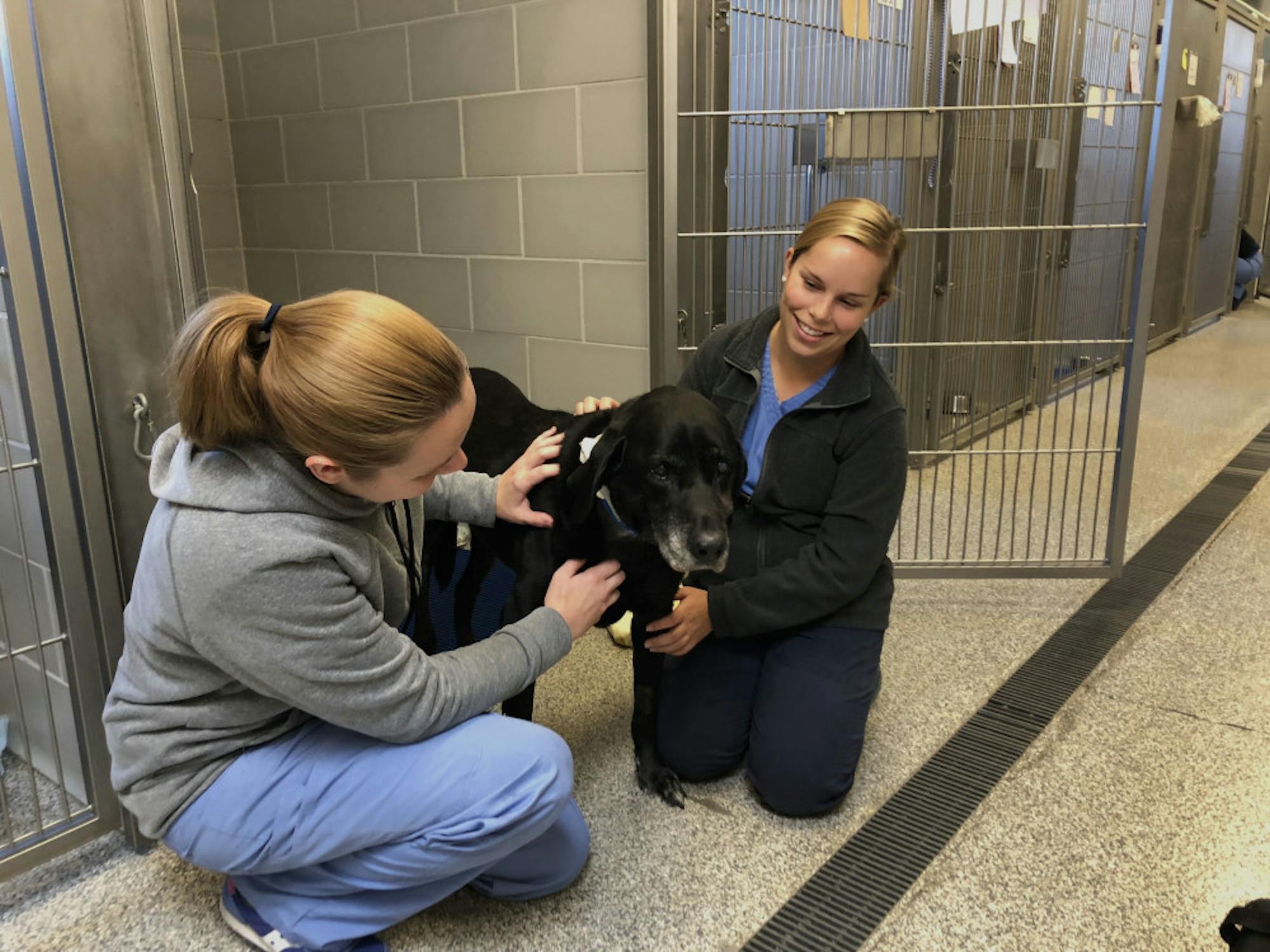The Cummings School of Veterinary Medicine at Tufts University is running a number of clinical trials on oncology patients, according to Clinical Trials Director and Research Professor Cheryl London.
According to London, dogs are the primary patients. She said that many of the trials are focused on dogs not only because they experience a wide variety of cancers, but also because those illnesses are closely related to human cancers. She said the trials are also focused on dogs simply because the veterinarians know much more about cancers in dogs than in other species.
“The actual annual incidence rate is higher in dogs than it is in people,” London said. “Generally, one in four dogs over their lifetime will get cancer, and then if they live beyond 10, at least half of them will get some kind of tumor. The most common cause of death for almost all breeds of dogs is cancer.”
Clinical Trials Veterinary Technician and Coordinator Diane Welsh said many of the medicines used on dogs are the same ones that are used for humans. She explained the benefits of testing cancer treatments in dogs as opposed to artificially infecting rats with cancer in a laboratory.
“[The cancer] is naturally occurring in the dogs, the same way it would naturally occur in a human,” Welsh said. “We’re trying these new therapies out to see if it’s going to work, and then if it does work in the dog population, there’s hope that it would then translate to the human side and be as effective.”
Welsh said that patients are often referred to the Clinical Trials Office as a result of emergency room visits, regular oncology appointments or by learning about the trials elsewhere and directly inquiring.
London explained that for a patient to participate in the trial, the first steps would be to determine their eligibility and to obtain the consent from the owner. She said that each trial is different, with some involving actual treatment and others just involving data collection.
Dog owner Rachel Mangan had a dog named Saoirse who had an inoperable laryngeal pharyngeal squamous cell tumor and participated in a clinical trial. She explained that Saoirse was given Palladia, a tyrosine kinase inhibitor, in advance of her chemotherapy and was also prescribed a blinded drug to help with her gastrointestinal issues.
Because the trial was blinded, meaning the patient did not know the test information, Mangan did not initially know what the medicine was. It turned out to be so effective that Saoirse continued using it after the trial ended.
“[Saoirse] made it 19 months, which was unbelievable, unprecedented, and we were so excited to have her around. She did really well for significantly longer than they anticipated,” Mangan said.
Mangan’s other dog Angus was recently diagnosed with squamous cell carcinoma in his toe and has just begun a clinical trial. She said she was informed about the clinical trial options last week and within a couple of days Angus began receiving ART 207 treatment.
Mangan said for her, signing up for the trials was an easy decision on both occasions. She said the trials would not only potentially help her dogs but could also help other dogs in the future.
“It was almost a no-brainer for me,” Mangan said. “The way I think about it, if obviously the treatment wasn’t working and if you have something that could potentially make a difference in our family’s lives and for Gus ... it matters.”
Through the lens of One Health, an initiative to encourage global collaborations between different health-based scientific disciplines for the planet and its inhabitants, London said these trials could have meaningful implications on human cancer treatment research. London also said collaboration and teamwork are important in these attempts to fight cancer.
“One Health is the notion that diseases in animals and humans are all connected and that we can really facilitate improving the health and welfare of animals, people and the planet by working together,” she said.
She explained that although biology can seem messy and uncorrelated between species, there are actually many connections that people can observe and learn from.
“Many of the relevant and important pathways are conserved through both plants and animals,” London said. “If you can do something called comparative medicine, where you compare diseases and therapies across species ... maybe you can gain a better understanding of what’s important and what’s really not relevant.”
Welsh explained that the majority of the funding for the clinical trials comes from sponsors and from grants. She said there is typically little or no cost to the pet owners who opt into the trials.
“This is really exciting work,” Welsh said. “If we can help our pet population, as well, then translate it into the human population, we can find cures for cancer or something to help slow the process down.”






